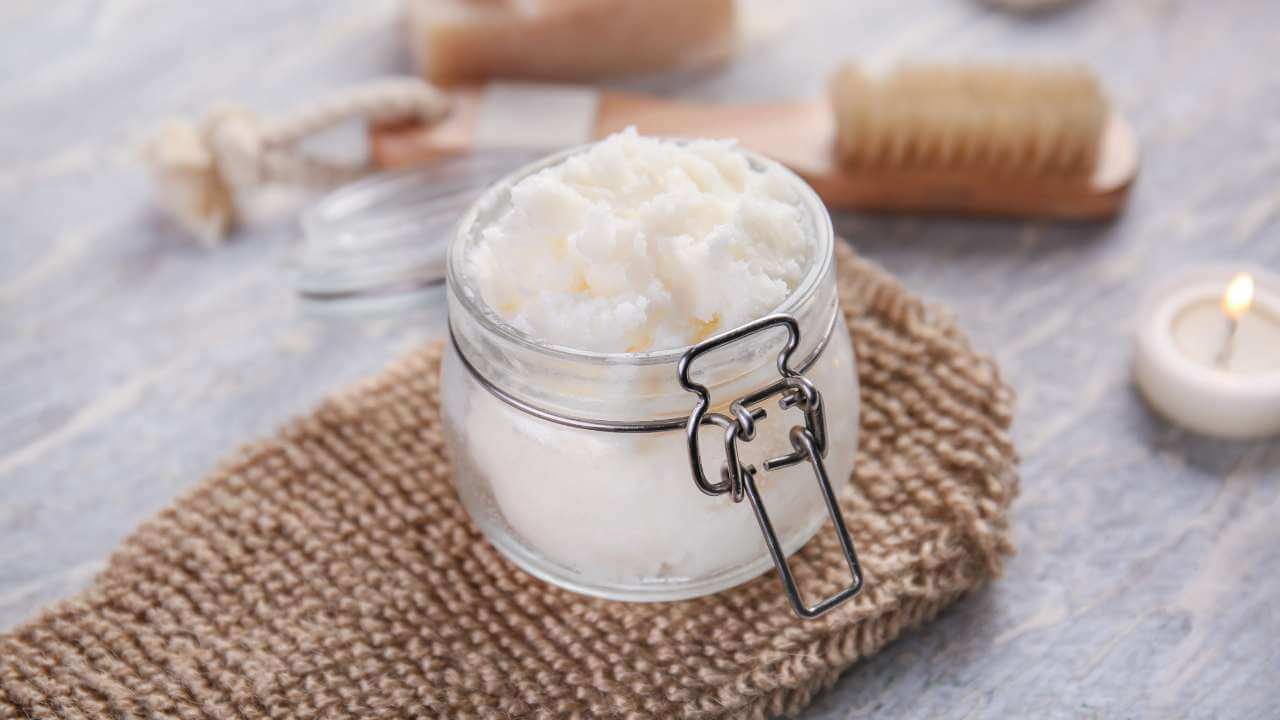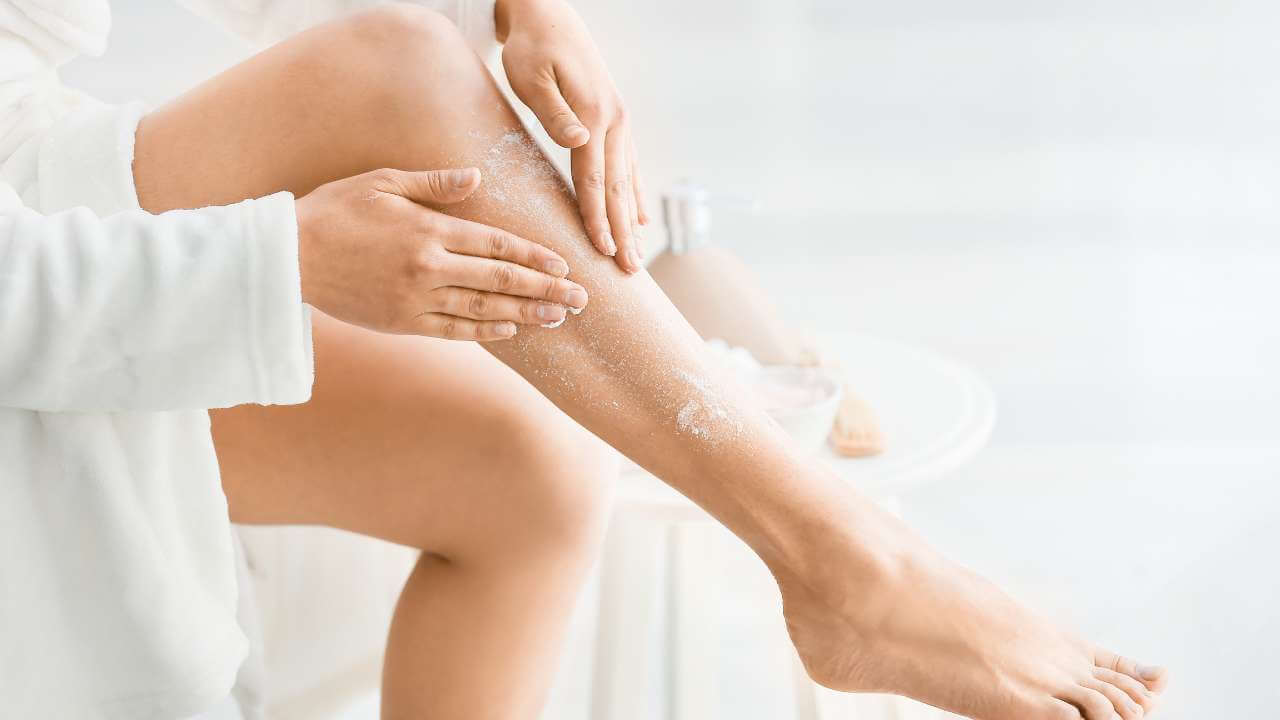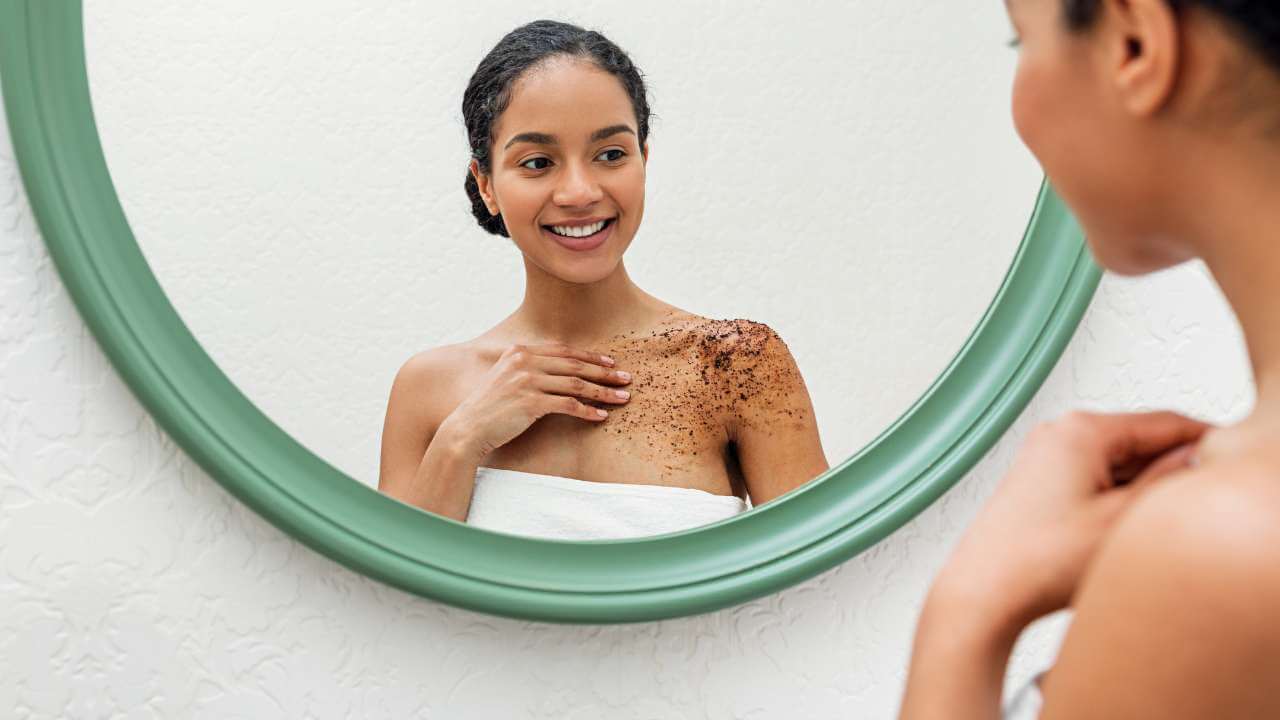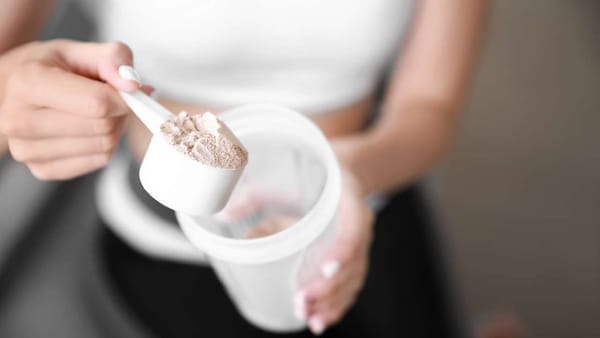Does your skin feel dull and lifeless?
Take control of the situation with natural exfoliants!
Natural exfoliants are packed with antioxidants that gently remove dead skin cells to reveal softer, smoother, and more radiant-looking skin.
Unlike other synthetic formulas which could be harsh on sensitive skin, natural exfoliants will nourish your face by deeply hydrating it while providing gentle scrubbing action that won’t leave you feeling like a red tomato.
Read on to discover the power of natural body exfoliation, today!

What are Natural Exfoliants?
Exfoliation is the process of removing dead skin cells from the surface of your skin. This practice helps to reduce acne, improve circulation, and give your skin a healthy glow.
When new skin cells are formed, dead ones should normally flake away. But when they don't, it can result in your skin looking uneven, patchy, or lacking luster.
Natural exfoliants are gentle enough to be used on sensitive skin, acne-prone skin, and even dry skin.
What's even better is that these natural exfoliants won't break the bank like chemical exfoliants and can be found right in your kitchen!
Here are some easy ways to naturally exfoliate your skin at home:
Natural Exfoliators
By merely massaging or rubbing these natural exfoliators on your skin, you can effortlessly and efficiently remove dead skin cells. This technique is referred to as physical exfoliation.
Unlike physical exfoliants, chemical exfoliants utilize skin-friendly substances such as alpha hydroxy acid and retinol to delicately loosen and dispose of the dead cells on your face.(1,2)
1) Oatmeal
Research conducted in 2012 revealed that skincare products made with colloidal oatmeal are an effective way to exfoliate the skin.(3)
The study further noted that oatmeal could successfully slough away dead skin cells, leading to a decrease in acne breakouts and improved removal of oils and bacteria on the surface of the skin.
2) Baking Soda
Combine a teaspoon of baking soda with warm water to create a paste. Gently massage this onto your skin for one minute, then rinse it off with lukewarm water.
This simple exfoliating facial scrub will help get rid of any dirt, oil, and bacteria on your skin’s surface.(4)
3) Sea Salt
Sea salt’s natural exfoliating properties make it a great way to buff away dead skin cells.(5)
All you need for this simple yet effective body scrub is 1/2 cup of coarse sea salt, 1/2 cup of oil such as coconut, olive, or jojoba oil, and 3 drops of essential oil like lavender, rose oil, chamomile, or geranium oil for a delightful aroma.
Gently massage this onto your skin for one minute, then rinse with lukewarm water.
4) Sugar
Sugar granules are an ideal form of physical exfoliation due to their coarse texture and shape.
With a sugar scrub, you can simply rub your skin in circular motions to slough away dullness from the surface of your skin; leaving behind a softer, smoother layer.
Sugar cane (brown sugar in particular) possesses an abundance of active elements such as glycolic acid.(6) These natural alpha hydroxy acids (AHA) are known to have a plethora of skin benefits!
5) Sponges
Scrubbing with a sponge is an effective way to exfoliate the skin and get rid of dead cells. A loofah sponge works especially well because it helps stimulate blood circulation while scrubbing away dirt, impurities, and old skin.(7)
Another great option for gentle facial exfoliation is konjac sponges made from Konjac plant fibers - these can help remove stubborn buildup without overly irritating your delicate face!
6) Milk
Milk's lactic acid works like a charm to slough away dead skin cells.(8) To use it as one of your facial scrubs, pour some milk into your palm and massage it onto the skin.
You can even mix whole milk with egg whites for dry skin or add Aloe Vera if you have sensitive skin types.
With this simple DIY, face scrub and mask at home, you'll enjoy the benefits of natural skincare without shelling out too much money!
7) Others
In addition to the previously mentioned natural exfoliants, some other popular options include:
- Coffee Grounds
- Finely Ground Almonds
- Cinnamon
To further boost your skincare routine you can even add items commonly found in your kitchen such as honey, green tea, chamomile tea, and essential oils to create a unique blend that works wonders for your complexion!
Get glowing skin with this ultimate list of natural exfoliators. Remove dead skin cells, get rid of clogged pores, and prevent breakouts and blackheads today!

How Often Should You Exfoliate Your Skin?
The frequency of exfoliation will vary depending on both - skin types and the process used.
People with oily skin should exfoliate more regularly than those with dry or sensitive skin; the intensity of your scrubbing regimen will dictate how often you need to apply it.
The harsher the abrasive action, the less frequently you'll want to do so.
Exfoliating your face should never exceed more than one to three times a week, as it can easily cause damage and skin irritation.
If you experience any type of discomfort or redness, stop exfoliation until the area has healed, and consider decreasing the frequency with which you exfoliate or trying an alternative method entirely.
When deciding on an exfoliation technique, one should always keep their skin tone in mind.
Particularly those who have darker tones may want to consider avoiding more powerful chemical or mechanical methods as they can lead to the development of dark spots and other discoloration.
It is recommended to speak with a medical professional, such as a dermatologist when deciding on the best exfoliation routine for your skin type especially if you have sensitive skin or acne-prone skin.

Use Caution When Exfoliating Your Skin
When it comes to exfoliation, there is no one-size-fits-all approach - every individual should consider their own skin type and select the right technique for them.
- Too much of a good thing can be harmful though; overdoing it could result in redness or acne breakouts. For everyday use, choose facial scrubs with gentle ingredients to keep your skin looking and feeling its best.
- Additionally, someone suffering from sunburn, cuts, or open wounds should refrain from exfoliating as this will cause even more irritation to already sensitive skin.
- When exfoliating, be aware that overdoing it can cause micro-tears in the surface layer of the skin as well as weaken its natural barrier.
- If you prefer mechanical exfoliants like sponges or washcloths, make sure they are regularly cleaned since these materials tend to accumulate bacteria which may lead to breakouts on the skin.
- Since your facial skin is more delicate than other parts of your body, it's best to avoid coarser exfoliants like sea salt, sugar, or coffee.

Did We Mention...
How to Exfoliate Skin Naturally FAQs?
With numerous skincare solutions available, finding the answer to all your skin's needs can seem overwhelming and frustrating.
For that reason, we have carefully crafted this helpful compilation of FAQs to aid you in conquering any difficulties and ultimately attaining beautiful, radiant skin!
Let's dive right in.
What is the Best Technique to Exfoliate the Skin?
For chemical exfoliators, the Amercian Academy of Dermatology (AAD) advises utilizing small circular motions when applying the product.(9)
When physical exfoliants - such as a sponge or cloth- come into play; rather than scrubbing harshly, use short light strokes to get smooth results.
One should be mindful to avoid abrasive actions if their skin is covered with wounds, cuts, or sunburns to stay safe and healthy!
Could Lactic Acid be the Answer to Your Exfoliation Needs?
People with sensitive skin types can benefit from the use of lactic acid as a chemical exfoliant, as it's much gentler on irritated skin than other AHA and BHA acids.
Unlike its counterparts, this mild exfoliator won't disrupt the pH balance of your skin or cause unwelcome redness and irritation.
What is the Best Natural Exfoliant for Feet?
Increasingly more people are turning to the power of ground coffee for their skincare needs.
Not only can it be used as an exfoliant to reduce the appearance of cellulite, but you can even mold it into cubes and use them on stretch marks!
To really finish off this special spa treatment for your feet, add a few drops of peppermint essential oil – not only does its scent evoke feelings of natural freshness, but also helps diminish any aches or pains in your feet.
What Other Methods Can I Use Besides Exfoliating to Maintain Soft and Smooth Skin?
The key to keeping skin looking healthy and vibrant lies in both exfoliating and moisturizing. This duo prevents signs of aging, keeps breakouts away, and leaves your skin feeling soft and supple.
Moisturizing regularly helps to keep the skin hydrated and healthy, and can also assist in replenishing essential vitamins in the skin.
Additionally, you can opt for a weekly face mask - from mud to clay, to cream masks - to hydrate your skin and make sure it stays healthy and hydrated.
All of these steps, when done together, will help bring out the natural beauty of your skin while keeping it healthy and youthful.
By using finely ground coffee, along with a nurturing carrier oil like coconut oil to condition and moisturize your skin while exfoliating, you can reap the benefits of an ultra-gentle scrub.
Could Exfoliation be the Answer to Your Acne Woes?
If you're struggling with acne and are considering exfoliating to improve your skin's complexion, it is essential that you first evaluate the acne products in your current skincare routine which we cover in our previous body wash guide.
Exfoliation may be a beneficial tool for some individuals looking to clear their skin; however, certain medications-like those including retinol or benzoyl peroxide- can lead to heightened sensitivity of the skin leading to further breakouts.
Similarly, if you have acne-prone skin, using mechanical methods of exfoliating can create too much irritation and cause additional damage.
Therefore selecting an appropriate method should suit both your existing treatment plan and type of skin before engaging in any physical form of exfoliation.

The Final Mention
Exfoliating your skin is one of the best ways to keep it looking healthy, youthful, and glowing.
Natural ingredients such as sea salt, oats, and sugar are all great forms of exfoliants with which you can take proper steps toward getting radiant skin right at home.
Remember that when using any kind of exfoliator, it’s important to use gentle circular motions when rubbing and avoid anything too abrasive.
Make sure you only exfoliate twice a week or so - any more than that could lead to excessive dryness that could make your skin look less pleasing than before.
People with naturally sensitive skin should be particularly careful when using these substances as irritated skin won’t look good either!
Have you ever tried making your natural skincare products? If so, comment below and let us know how it went!
✅ 9 Sources
HealthMention only uses sources from authoritative and reliable resources, such as peer-reviewed studies, to strengthen the accuracy of our content.
- Tang SC, Yang JH. Dual Effects of Alpha-Hydroxy Acids on the Skin. Molecules : A Journal of Synthetic Chemistry and Natural Product Chemistry. 2018;23(4). doi:https://doi.org/10.3390/molecules23040863
- Zasada M, Budzisz E. Retinoids: active molecules influencing skin structure formation in cosmetic and dermatological treatments. Advances in Dermatology and Allergology. 2019;36(4):392-397. doi:https://doi.org/10.5114/ada.2019.87443
- Criquet M, Bertin. Safety and efficacy of personal care products containing colloidal oatmeal. Clinical, Cosmetic and Investigational Dermatology. Published online November 2012:183. doi:https://doi.org/10.2147/ccid.s31375
- Milstone LM. Scaly skin and bath pH: Rediscovering baking soda. Journal of the American Academy of Dermatology. 2010;62(5):885-886. doi:https://doi.org/10.1016/j.jaad.2009.04.011
- Proksch E, Nissen HP, Bremgartner M, Urquhart C. Bathing in a magnesium-rich Dead Sea salt solution improves skin barrier function, enhances skin hydration, and reduces inflammation in atopic dry skin. International journal of dermatology. 2005;44(2):151-157. doi:https://doi.org/10.1111/j.1365-4632.2005.02079.x
- Decker A, Graber EM. Over-the-counter Acne Treatments: A Review. The Journal of clinical and aesthetic dermatology. 2012;5(5):32-40. https://www.ncbi.nlm.nih.gov/pmc/articles/PMC3366450/
- Chen Y, Su N, Zhang K, et al. In-Depth Analysis of the Structure and Properties of Two Varieties of Natural Luffa Sponge Fibers. Materials. 2017;10(5):479. doi:https://doi.org/10.3390/ma10050479
- Tang SC, Yang JH. Dual Effects of Alpha-Hydroxy Acids on the Skin. Molecules : A Journal of Synthetic Chemistry and Natural Product Chemistry. 2018;23(4). doi:https://doi.org/10.3390/molecules23040863
- How to safely exfoliate at home. www.aad.org. https://www.aad.org/public/everyday-care/skin-care-secrets/routine/safely-exfoliate-at-home









